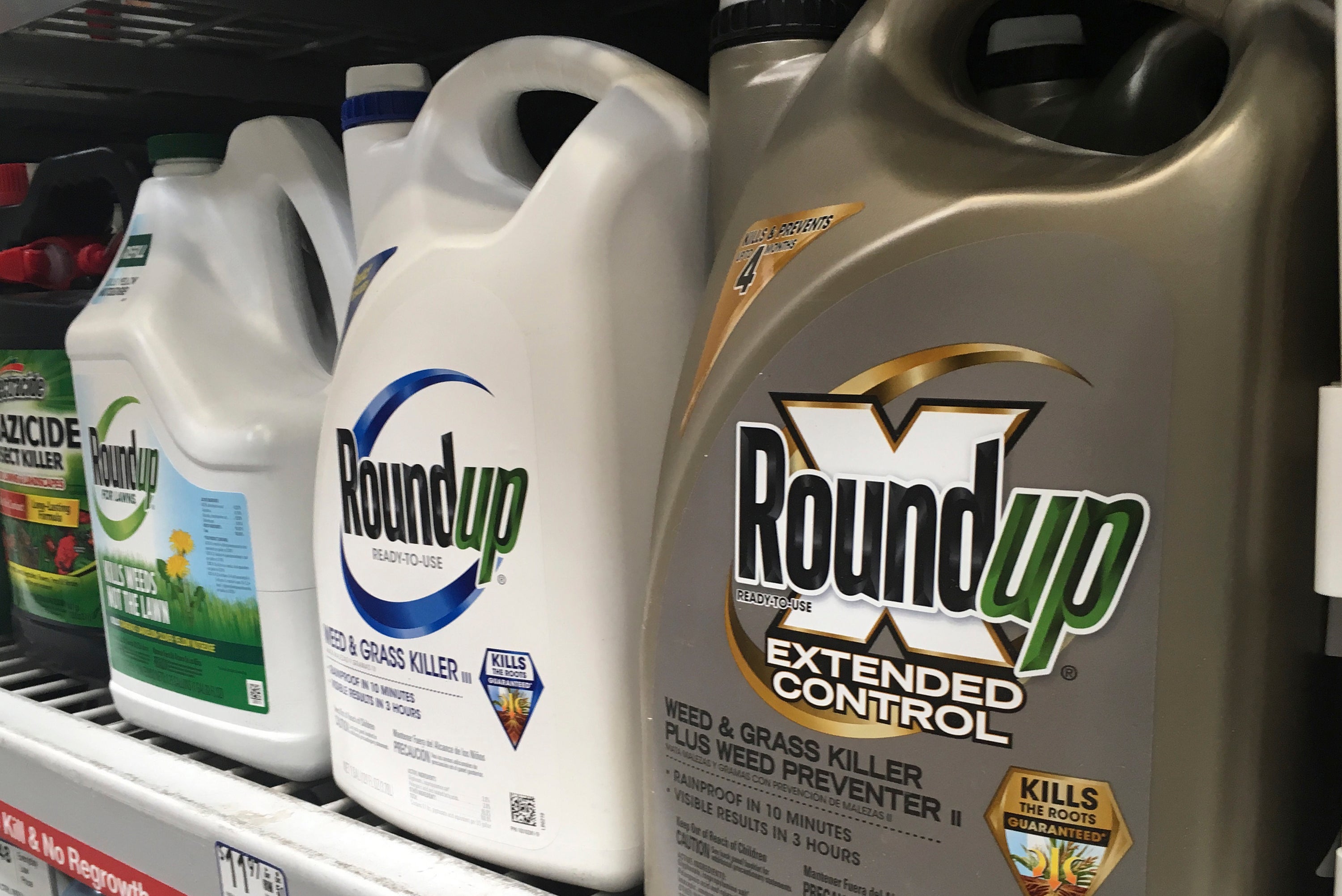Court rejects Trump-era EPA finding that weed killer safe
A federal appeals court has rejected a Trump administration finding that the active ingredient in the weed killer Roundup does not pose a serious health risk and is “not likely” to cause cancer in humans

Your support helps us to tell the story
From reproductive rights to climate change to Big Tech, The Independent is on the ground when the story is developing. Whether it's investigating the financials of Elon Musk's pro-Trump PAC or producing our latest documentary, 'The A Word', which shines a light on the American women fighting for reproductive rights, we know how important it is to parse out the facts from the messaging.
At such a critical moment in US history, we need reporters on the ground. Your donation allows us to keep sending journalists to speak to both sides of the story.
The Independent is trusted by Americans across the entire political spectrum. And unlike many other quality news outlets, we choose not to lock Americans out of our reporting and analysis with paywalls. We believe quality journalism should be available to everyone, paid for by those who can afford it.
Your support makes all the difference.A federal appeals court on Friday rejected a Trump administration finding that the active ingredient in the weed killer Roundup does not pose a serious health risk and is “not likely” to cause cancer in humans.
The 9th U.S. Circuit Court of Appeals ordered the Environmental Protection Agency to reexamine its 2020 finding that glyphosate did not pose a health risk for people exposed to it by any means — on farms, yards or roadsides or as residue left on food crops.
Glyphosate is the active ingredient in Roundup, the most widely used herbicide in the world. Pharmaceutical giant Bayer, which acquired the herbicide's original producer Monsanto in 2018, is facing thousands of claims from people who say Roundup exposure caused their cancer.
Roundup will remain available for sale. According to an agency spokesman, EPA officials are reviewing the 54-page ruling “and will decide next steps.″ The Supreme Court is also considering whether to hear an appeal from Bayer that could shut down thousands of lawsuits on the cancer claims.
Writing for a unanimous three-judge panel, Judge Michelle Friedland rejected EPA's finding of no risk to human health. She also ruled that EPA fell short of its obligations under the Endangered Species Act by inadequately examining glyphosate’s impact on animal species and vegetation.
Legal critics said EPA “shirked its duties under the Endangered Species Act. We agree and remand to the agency for further consideration,″ wrote Friedland, a nominee of former President Barack Obama.
The Center for Food Safety, one of the groups that challenged the decision, called Friday's ruling “a historic victory for farmworkers and the environment.''
The decision "gives voice to those who suffer from glyphosate’s cancer, non-Hodgkin’s lymphoma,” said Amy van Saun, senior attorney with the center.
“EPA’s ‘no cancer’ risk conclusion did not stand up to scrutiny,'' she said. “The court agreed that EPA needed to ensure the safety of endangered species before greenlighting glyphosate.”
While EPA has said it has not found evidence of cancer risk from glyphosate, the Biden administration has said it plans to revisit the issue. In 2015, the International Agency for Research on Cancer classified the chemical as “probably carcinogenic.”
Bayer announced last year it is removing glyphosate from the U.S. residential lawn and garden marketplace, effective as early as 2023.
A spokesperson for Bayer could not immediately be reached for comment. But the company argues in court that federal regulators have repeatedly determined its products are safe, and that lawsuits based on claims under state laws should be dismissed.
Last year, Bayer set aside $4.5 billion to deal with the claims that glyphosate causes non-Hodgkin’s lymphoma, a type of cancer. The company had previously taken a charge of nearly $10 billion for earlier rounds of litigation.
“EPA’s failure to act on the science, as detailed in the litigation, has real-world adverse health consequences for farmworkers, the public and ecosystems,” said Jay Feldman, executive director of Beyond Pesticides, a plaintiff in the case. “Because of this lawsuit, the agency’s obstruction of the regulatory process will not be allowed to stand.''